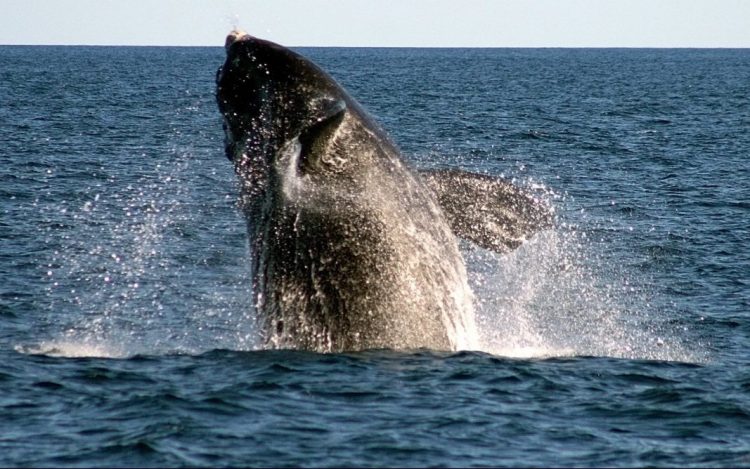A scientific paper that called for stricter regulations on Maine’s lobster fishery to protect endangered right whales plainly illustrates a two-sided problem.
We need policymakers who will rely on science. And they need science that they can rely on. If either side of the equation is missing, nothing works.
When we talk about climate change, we are used to politicians who ignore the science. But this time, it was the scientists who let us down.
A report issued by the National Oceanic and Atmospheric Administration in advance of a big regulatory conference singled out stronger ropes, which, they said, are being used by Maine lobstermen and are entangling whales as they migrate through Maine waters.
The report’s authors proposed more gear changes and possible closures in some areas to respond to a rising number of whale deaths. They attributed the fatal entanglements to an unintended consequence of earlier regulations, which limited the number of vertical lines in the water, thus requiring longer strings of traps. “While this reduced the number of lines, it also meant that lines had to be stronger to accommodate the increased load of multiple traps,” the report’s authors wrote.
That sounds reasonable, but the authors didn’t include any data to support it. When pressed, the authors had to admit that it is just a hypothesis.
Stronger rope is not the only thing that could be to blame. There is a lot of change going on under the surface of the water. Warming trends, attributable to greenhouse gas emissions released by burning fossil fuels, are causing the whales to change their migration patterns, making them more likely to collide with ships or become entangled with fishing gear in Canadian waters, which have only recently been subject to whale preservation rules. Most of the entanglements so far appear to have involved Canadian gear.
Regulatory changes may indeed be needed to keep whales from being struck by ships or tangled in lines. But it’s hard to know what the right changes are without collecting accurate data. It’s certainly not a good idea to present guesses as findings and recommend remedies on that basis.
The Maine Department of Marine Resources received a federal grant to study the types of gear being used. According to Marine Resources Commissioner Patrick Kelliher, preliminary findings show that the rope that’s being used has a breaking point within the whale protection guidelines. Kelliher said that there has not been a whale entangled in a Maine fisherman’s line since the new rules went into effect.
“If we use the wrong starting point, and that’s what this report is, the wrong starting point, what kind of regulations will we end up with?” Kelliher said.
It’s important to understand what’s happening to the whales before trying to fix it. If we want the best policy, we need the best science.
Copy the Story LinkSend questions/comments to the editors.



Success. Please wait for the page to reload. If the page does not reload within 5 seconds, please refresh the page.
Enter your email and password to access comments.
Hi, to comment on stories you must . This profile is in addition to your subscription and website login.
Already have a commenting profile? .
Invalid username/password.
Please check your email to confirm and complete your registration.
Only subscribers are eligible to post comments. Please subscribe or login first for digital access. Here’s why.
Use the form below to reset your password. When you've submitted your account email, we will send an email with a reset code.